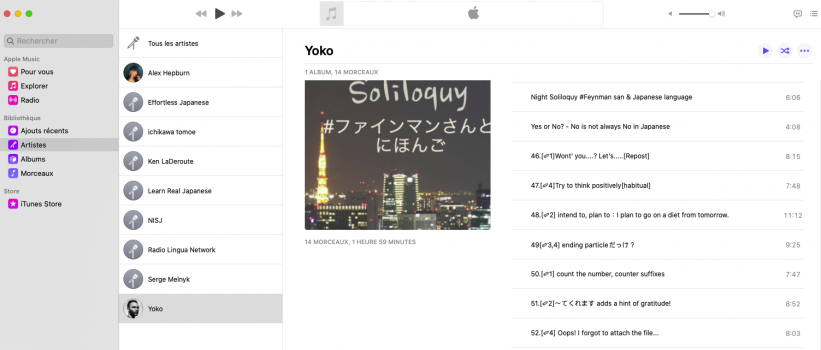I like to archive some podcasts and notice that the new Podcast app in MacOS Catalina seems to make this unnecessarily hard.
The files are now stored in some obscure Library subdirectory, and not in Music anymore. This is not ideal, but ok (one just needs to locate them the first time).
However, what is more annoying, is that file names now consist of some sort of meaningless hash codes (not sure which hash is used, but I see file names using only hexadecimal digits). This defeats the purpose of any classification (outside of the Podcast app which seems to use some kind of internal dictionary).
Is there a standard and clean way to export the podcasts to files, with meaningful names ?
The files are now stored in some obscure Library subdirectory, and not in Music anymore. This is not ideal, but ok (one just needs to locate them the first time).
However, what is more annoying, is that file names now consist of some sort of meaningless hash codes (not sure which hash is used, but I see file names using only hexadecimal digits). This defeats the purpose of any classification (outside of the Podcast app which seems to use some kind of internal dictionary).
Is there a standard and clean way to export the podcasts to files, with meaningful names ?


